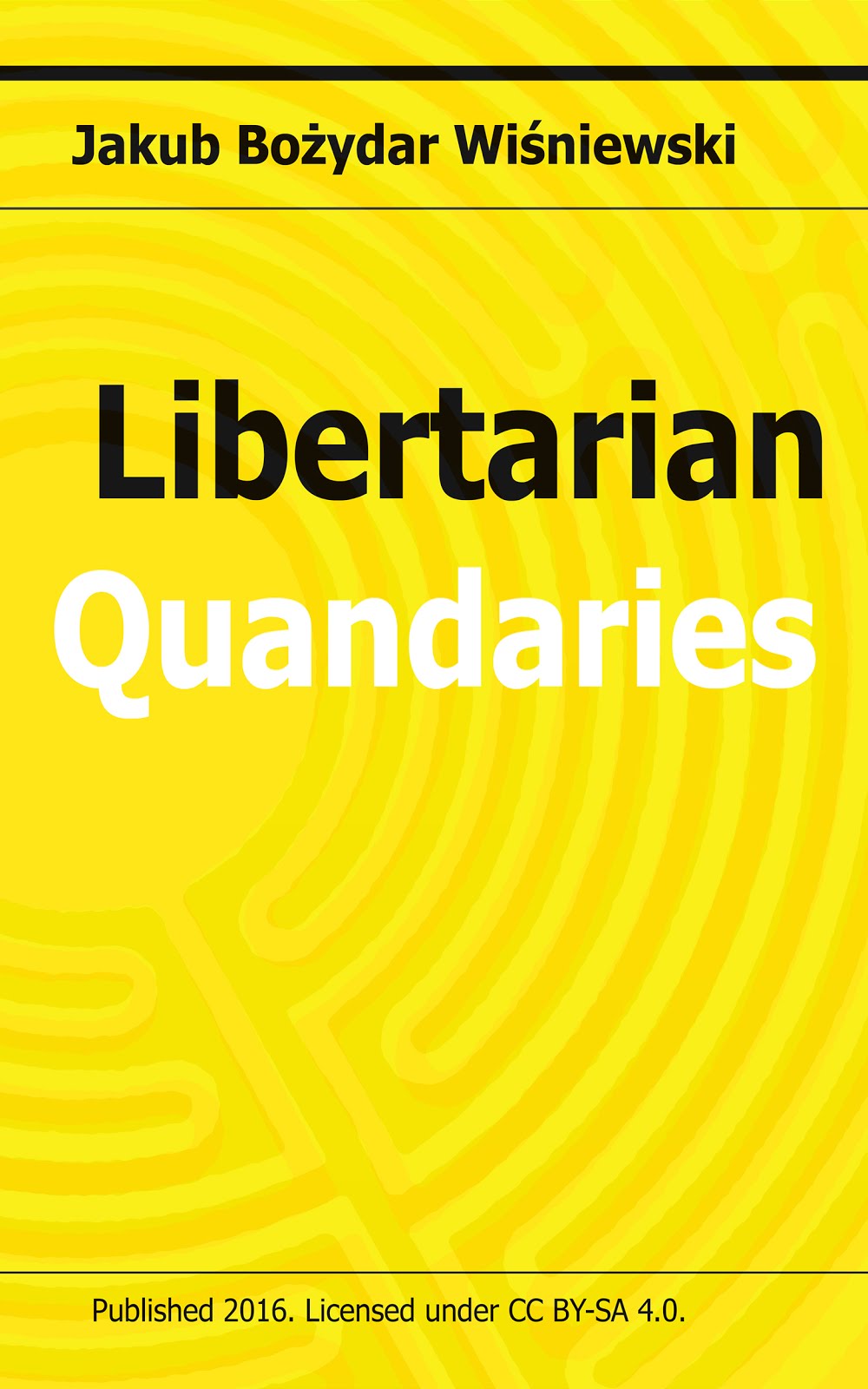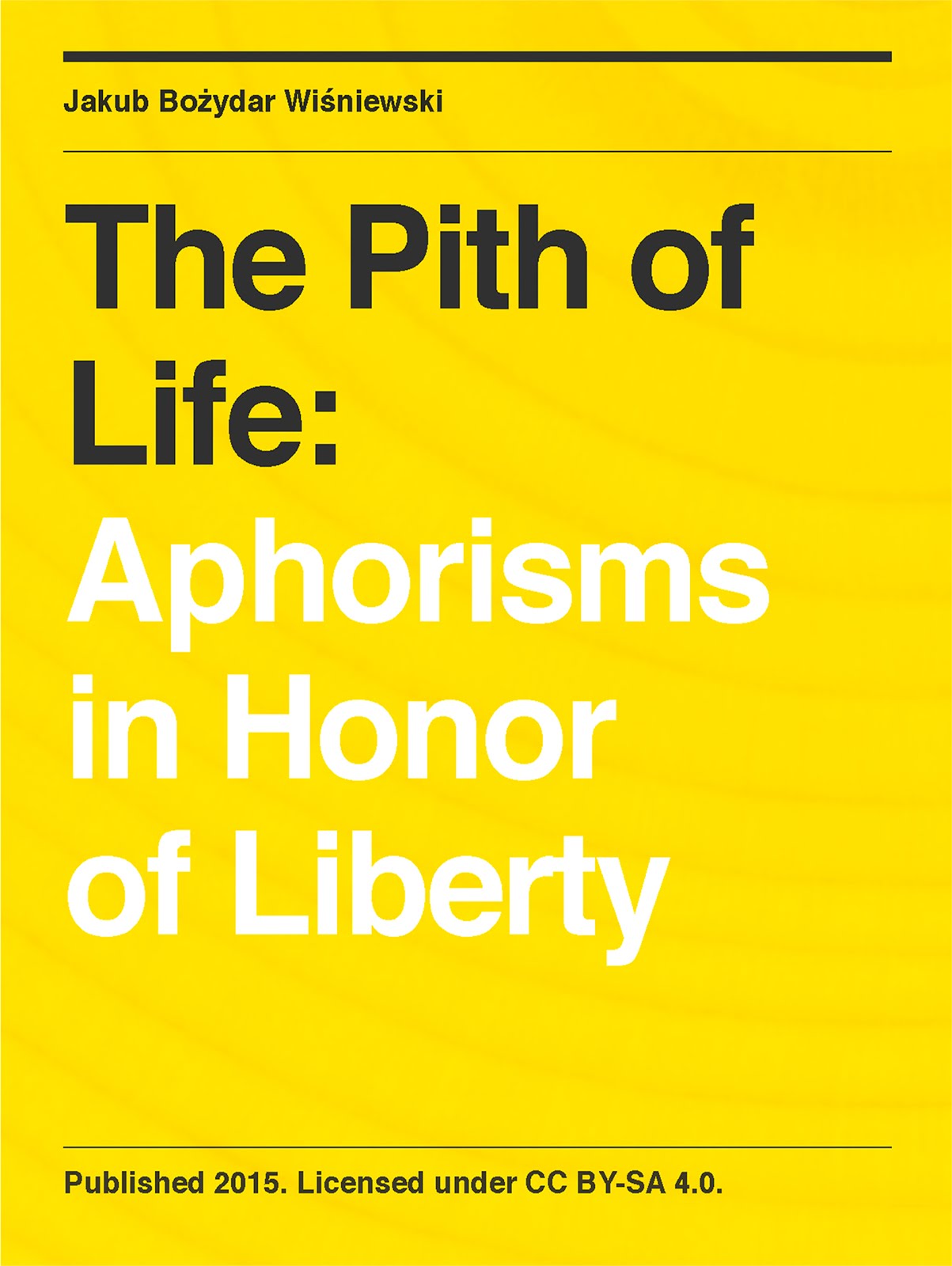Wednesday, January 29, 2014
Legal Monocentrism and the Paradox of Government
My paper "Legal Monocentrism and the Paradox of Government" has just been published in the new issue of The Quarterly Journal of Austrian Economics. You might want to read it if you are interested in topics such as legal polycentrism, private provision of law and defense, and entrepreneurial creation of institutional frameworks.
Labels:
entrepreneurship,
institutions,
polycentrism,
private law
Sunday, January 26, 2014
The Wisest Words That Have Ever Been Said
“The state is that great fiction by which everyone tries to live at the expense of everyone else.” - Frédéric Bastiat
Probably the wisest words that have ever been said. If they were internalized by the majority of people, it would be the turning point in moving from the world of near-universal shameless parasitism, endless conflict-mongering, and contempt for individual liberty to the world of genuine peace, cooperation, and mutual respect.
Probably the wisest words that have ever been said. If they were internalized by the majority of people, it would be the turning point in moving from the world of near-universal shameless parasitism, endless conflict-mongering, and contempt for individual liberty to the world of genuine peace, cooperation, and mutual respect.
Tuesday, January 14, 2014
A Note on the Rarity of the Libertarian Mindset
It seems to me that the reason why the libertarian mindset is so comparatively rare is that its formation requires a rare combination of individually necessary and jointly sufficient conditions, among which I would list at least the following psychological and intellectual characteristics:
1. Immunity to Stockholm Syndrome.
2. Immunity to libido dominandi.
3. Ability to think like an economist, i.e., in terms of opportunity costs, unintended consequences, incentive structures, etc.
4. Ability to overlearn moral principles.
I find hope in that none of the above seem primarily innate. On the contrary, their emergence appears to be a natural consequence of successfully overcoming certain easily identifiable cognitive biases and unreflective propensities. Thus, in view of the accelerated unfolding of the process of technological progress, universalization of access to free knowledge, and increasing cultural interconnection, all of which make these biases and propensities increasingly easy to overcome, the libertarian mindset is likely to become more and more common.
1. Immunity to Stockholm Syndrome.
2. Immunity to libido dominandi.
3. Ability to think like an economist, i.e., in terms of opportunity costs, unintended consequences, incentive structures, etc.
4. Ability to overlearn moral principles.
I find hope in that none of the above seem primarily innate. On the contrary, their emergence appears to be a natural consequence of successfully overcoming certain easily identifiable cognitive biases and unreflective propensities. Thus, in view of the accelerated unfolding of the process of technological progress, universalization of access to free knowledge, and increasing cultural interconnection, all of which make these biases and propensities increasingly easy to overcome, the libertarian mindset is likely to become more and more common.
Saturday, January 11, 2014
A Reason Why the World is Not a Better Place
Friday, January 3, 2014
When Facts and Logic Seem to Be in Conflict
Whenever there seems to be a conflict between facts and logic, try to determine whether in the case at hand the facts seem more factual than the logic seems logical or vice versa. If it's the former, recheck the logic for error. If it's the latter, recheck the facts for accuracy. In either case, the seeming conflict will lead to genuine progress.
Subscribe to:
Posts (Atom)


